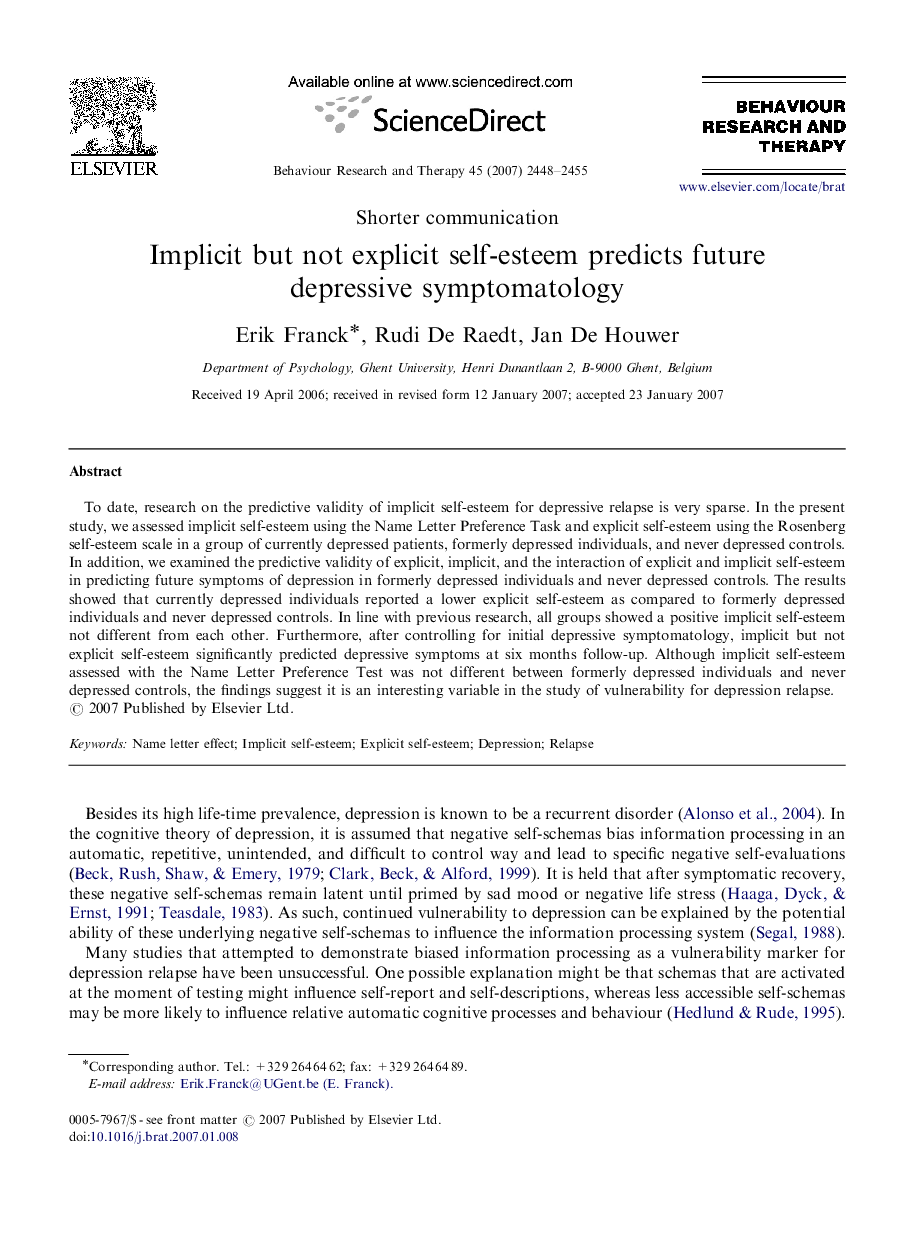| Article ID | Journal | Published Year | Pages | File Type |
|---|---|---|---|---|
| 902305 | Behaviour Research and Therapy | 2007 | 8 Pages |
To date, research on the predictive validity of implicit self-esteem for depressive relapse is very sparse. In the present study, we assessed implicit self-esteem using the Name Letter Preference Task and explicit self-esteem using the Rosenberg self-esteem scale in a group of currently depressed patients, formerly depressed individuals, and never depressed controls. In addition, we examined the predictive validity of explicit, implicit, and the interaction of explicit and implicit self-esteem in predicting future symptoms of depression in formerly depressed individuals and never depressed controls. The results showed that currently depressed individuals reported a lower explicit self-esteem as compared to formerly depressed individuals and never depressed controls. In line with previous research, all groups showed a positive implicit self-esteem not different from each other. Furthermore, after controlling for initial depressive symptomatology, implicit but not explicit self-esteem significantly predicted depressive symptoms at six months follow-up. Although implicit self-esteem assessed with the Name Letter Preference Test was not different between formerly depressed individuals and never depressed controls, the findings suggest it is an interesting variable in the study of vulnerability for depression relapse.
